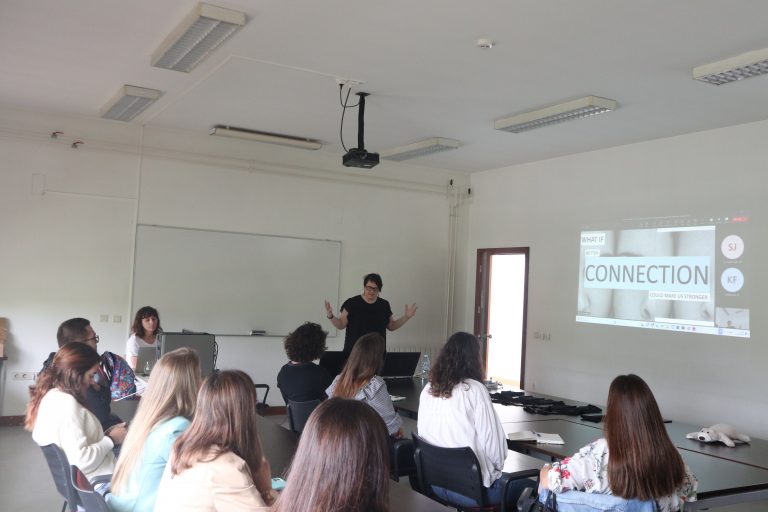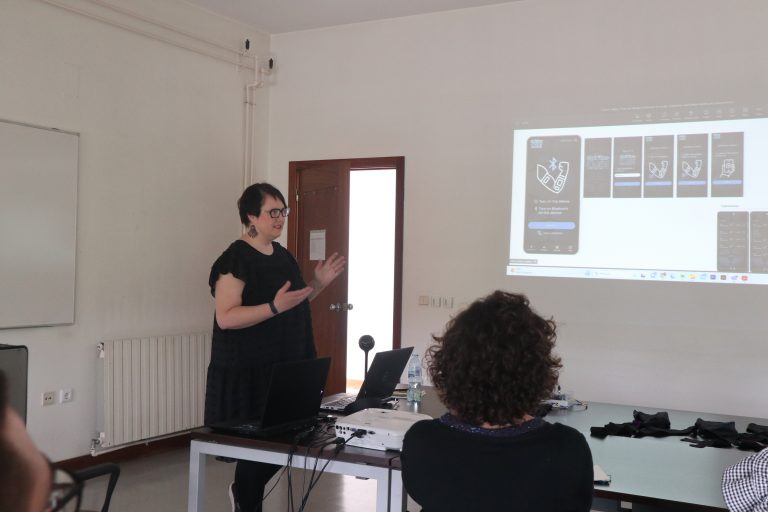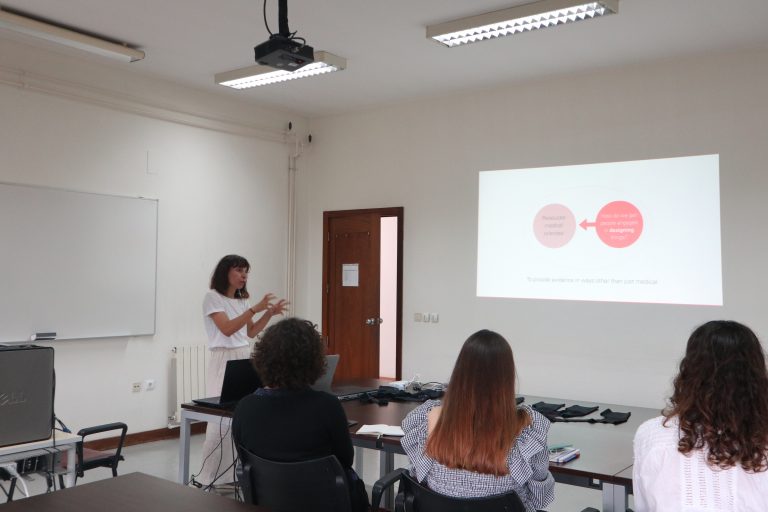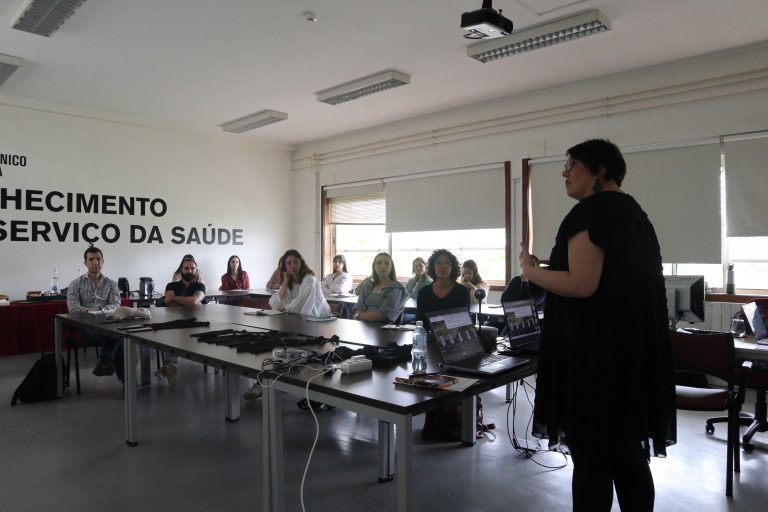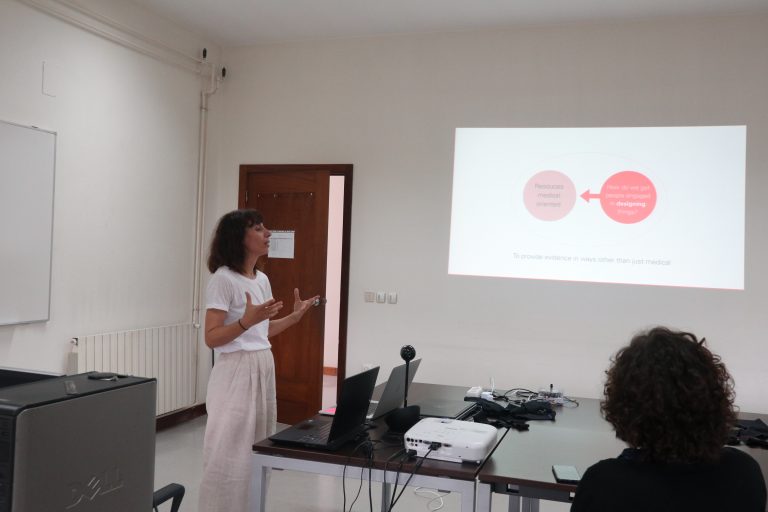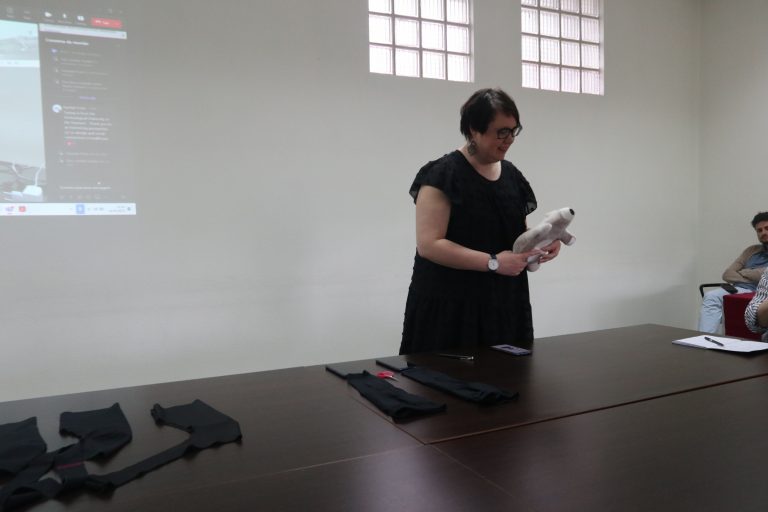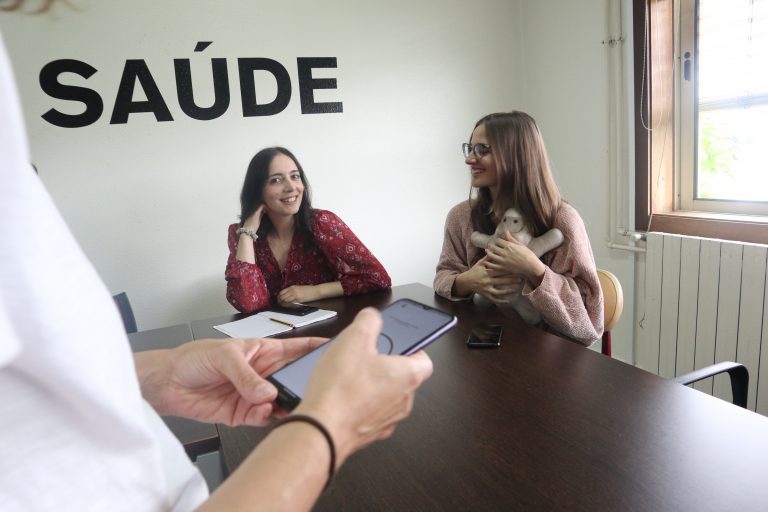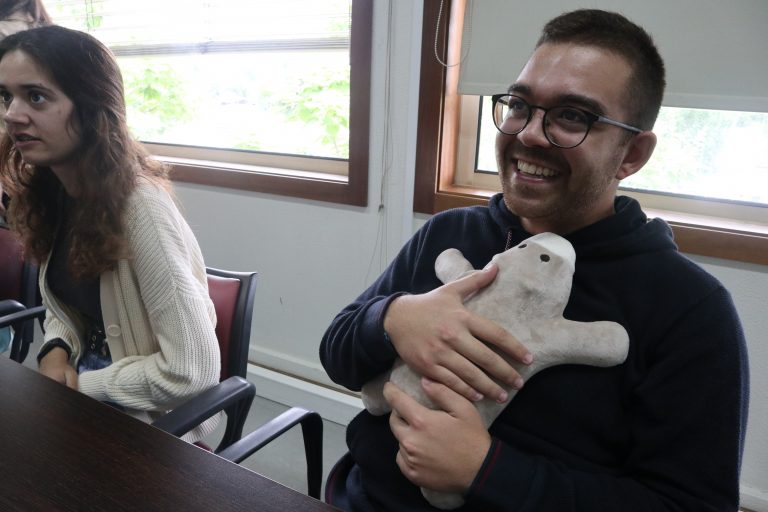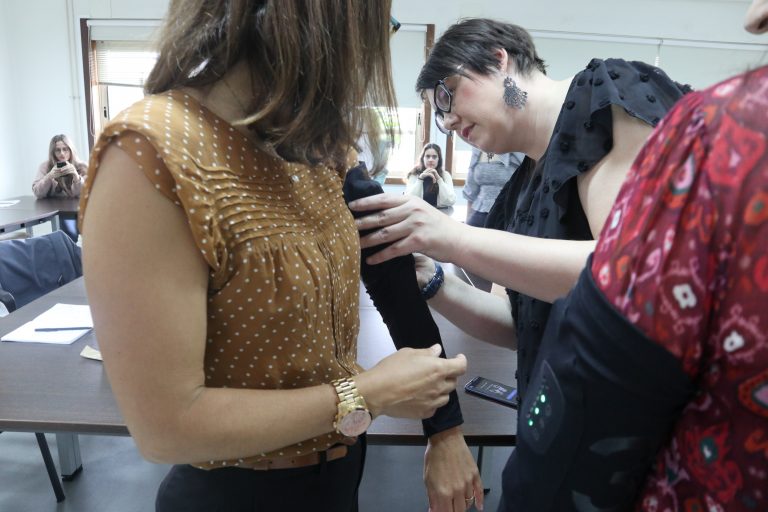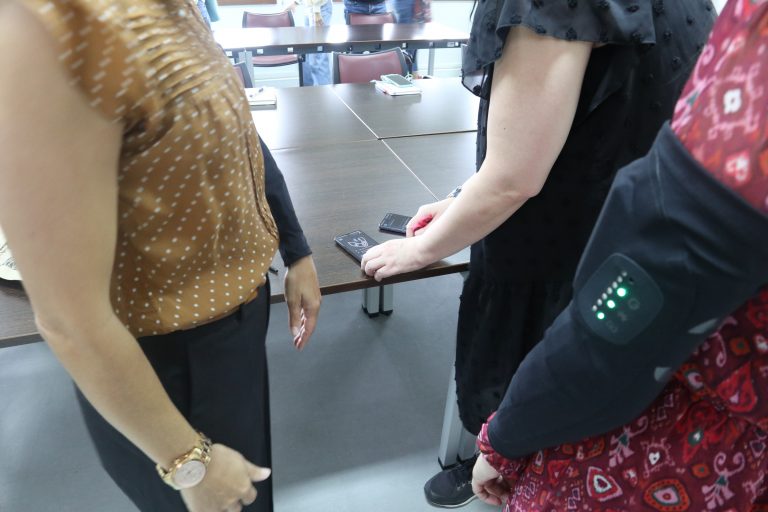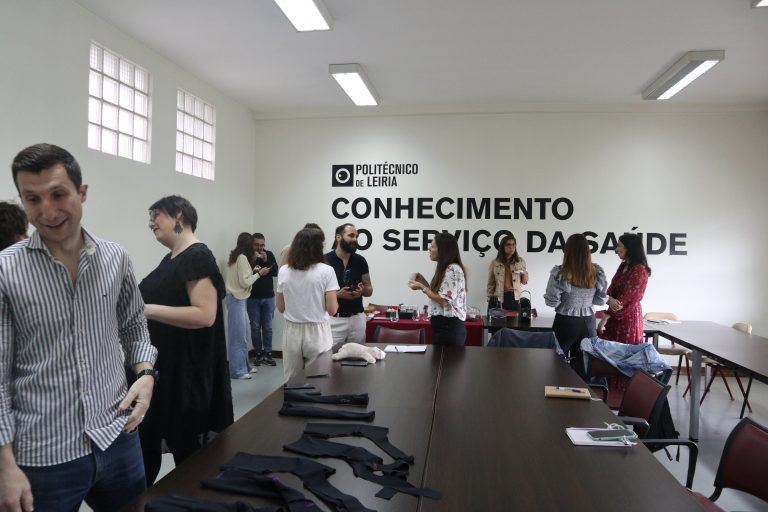Sandra Neves, design healthcare-related researcher and Vice-Director of LIDA (Laboratory in Design and Arts of Polytechnic of Leiria) and Satu Jumisko-Pyykkö, principal research scientist at the University of Applied Sciences Häme, in Finland, on Design thinking lead a science swing session on may 31, at 10 a.m.
Both communications addressed several design projects whose practical application in various situations, both in the hospital and in daily life, through human interaction is truly remarkable.
The LIDA researcher presented the participatory design process used in the SafeTrack project, developed in partnership with the Hospital Center of Leiria. This project allowed a dialogue between designers, health professionals and patients’ representatives, which resulted in the development of a prototype for a new monitoring system for patients in a context of hospital emergency, in order to better respond to users’ safety issues and the quality of care provided.
Also Satu Jumisko-Pyykkö revealed other projects that deserved to be highlighted in this session and that showed the impact of the application of technological devices, designed and thought by researchers in design, in the context of practice of collective sports, for example. Another solution presented, and already available in the market, was the representation of a device that allows to mitigate the feeling of missing someone from the affective and involuntary separation of two people, providing an embrace induced by a mobile application.
The communications entitled “Design for a good digital life” and “Participatory design as an approach to develop healthcare interventions” guided the session that intended to promote the sharing of high-quality scientific project data as well as to foster collaborative networks.
This was a session that presented innovative solutions in the area of design applied to health and quality of life and was attended by researchers and experts from different areas such as biomedical engineering, nutrition, public health, boosting the interaction and sharing of experiences among researchers.
This work was funded by Portuguese national funds provided by Fundação para a Ciência e Tecnologia, I.P. FCT/UI/05704/2020

